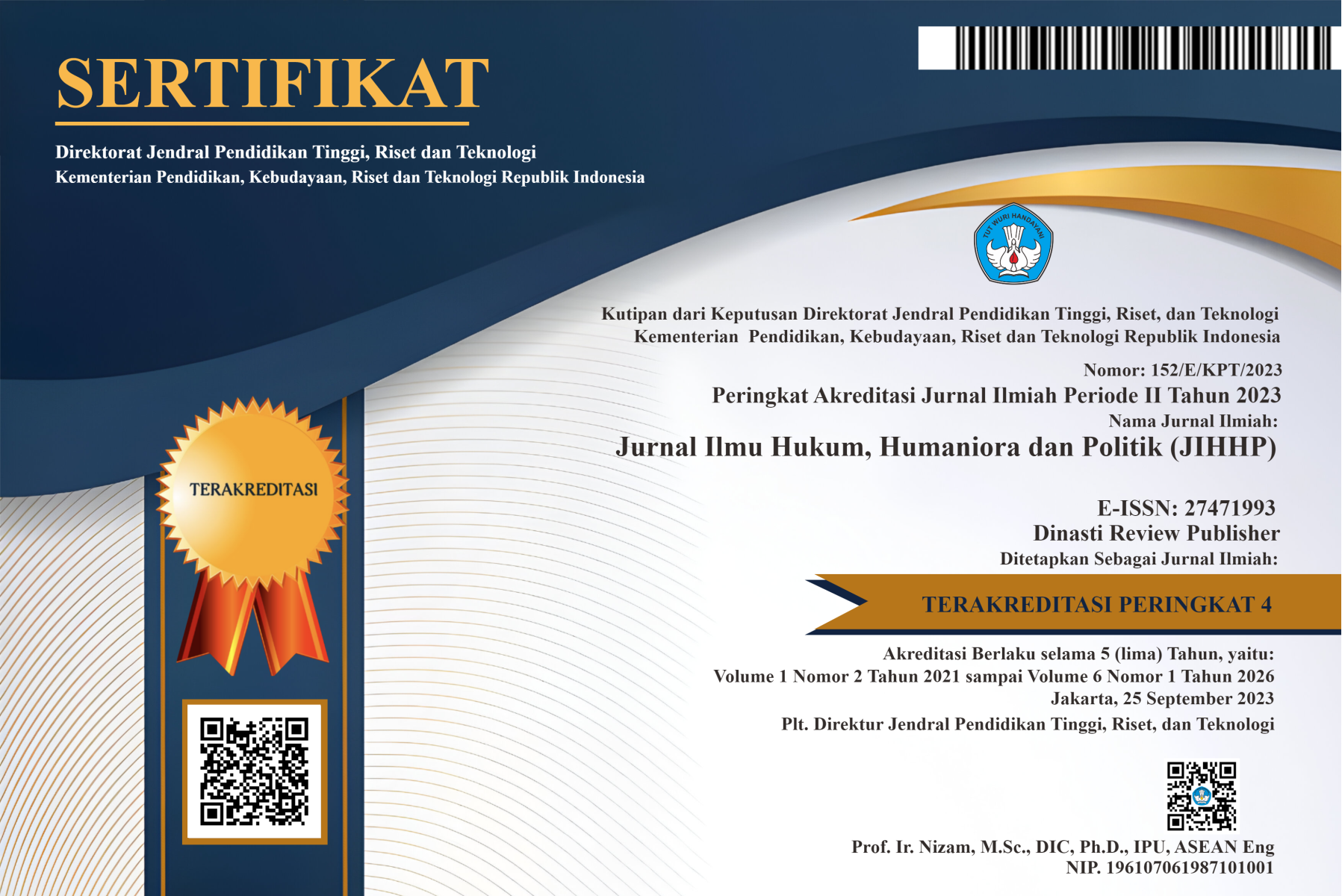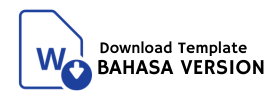Kebijakan Hukum Terhadap Perlindungan WHITSLE BLOWER Pada Tindak Pidana Pencucian Uang
DOI:
https://doi.org/10.38035/jihhp.v3i4.1978Keywords:
Policy, Law, Protection, Whistle Blower, Criminal.Abstract
Law enforcement against money laundering crimes currently refers to the provisions of Law Number 8 of 2010 concerning Prevention and Eradication of Money Laundering Crimes (UU No. 8/2010 concerning PP-TPPU), which is the legal basis (umbrella law) for enforcers law in preventing and eradicating criminal acts of money laundering. Regarding reporting parties who are burdened with the obligation to report suspicious financial transactions to PPATK, this has been explicitly stipulated in the provisions of Article 17 of Law no. 8/2010 concerning PP-TPPU, where the parties consist of Financial Services Providers and Goods/Services Providers. There are inconsistencies in the formulation of the articles of Law no. 8/2010 concerning PP-TPPU and PP no. 43/2015 as an implementing regulation, will of course have implications for the legal certainty of protection for whistleblowers, which will have an impact on the implementation of reporting not being optimal and ultimately will also have an impact on efforts to prevent and eradicate money laundering crimes. This research is normative research. The research was carried out by researching the literature using a statute approach. The ideal regulation which is more legal and just, is to include several matters relating to whistleblowers in the Special Law on Whistleblowers or the revision of Law no. 31/2014 concerning PSK, namely: regarding information criteria, whistleblower rights, report substance, reporting system, technical protection and rewards for whistleblowers. Barriers to protection for whistleblowers of money laundering crimes, consisting of juridical factors and law enforcement factors . Juridical factors, protection of whistleblowers have not been clearly regulated in Law no. 31/2014 concerning prostitutes. Meanwhile, as a law enforcement factor, there are still differences in perception between law enforcers who are members of the criminal justice system and whistle blowers.
References
Adrian Sutedi, Hukum Perbankan : Suatu Tinjauan Pencucian Uang, Citra Aditya Bakti, Bandung, 2011.
Ganarsih, Yenti, Kriminalisasi Pencucian Uang (Money Laundring), Jakarta : Universitas Indonesia, 2012
NawawiBarda, Kebijakan Hukum Pidana,Jakarta : Prenada Kencana Media , Group, 2014
Nasution, Bismar, Rejim Anti Money Laundering di Indonesia, Book Terrace, Bandung, 2008.
Pardede, Marulak, Hukum Pidana Bank, Jakarta : Pustaka Sinar Harapan, 1995.
Rahardjo Agus, Cybercrime, Pemahaman dan Upaya Pencegahan Kejahatan Berteknologi, Bandung : PT. Citra Adiyta Bhakti, 2013
Sibuea Hotma P., Asas Negara Hukum, Peraturan Kebijakan, Jakarta : Erlangga , 2010
Sibuea Hotma P., Asas Negara Hukum, Peraturan Kebijakan, Jakarta : Erlangga , 2010
Sjahdeini, Remy Sutan, Seluk Beluk Tindak Pidana Pencucian Uang dan Pembiayaan Terorisme, PustakaUtama Grafiti, Jakarta, 2007.
Soekanto, Soerjono dan Madmudji, Sri, Metode Penelitian Hukum, Rajawali Pers, Jakarta, 2013.
Tahir, Heri Proses Hukum Yang Adil Dalam Sistem Peradilan Pidana Di Indonesia, Yokyakarta : Laskbang Pressindo, 2012.
Pronika Juliantika Manuhuruk, Triono Eddy, dan Ahmad Fauzi, Peran Perbankan Dalam Pencegahan dan Pemberantasan Tindak Pidana Pencucian Uang Yang Dilakukan oleh Nasabah, (Journal of Education Humaniora and Social Sciense (JHESS), Vol. 3 No. Desember 2020, page-325-332), hlm. 329.
Downloads
Published
How to Cite
Issue
Section
License
Copyright (c) 2024 Mhd. Hasbi

This work is licensed under a Creative Commons Attribution 4.0 International License.
Hak cipta :
Penulis yang mempublikasikan manuskripnya di jurnal ini menyetujui ketentuan berikut:
- Hak cipta pada setiap artikel adalah milik penulis.
- Penulis mengakui bahwa Jurnal Ilmu Hukum, Humaniora dan Politik (JIHHP) berhak menjadi yang pertama menerbitkan dengan lisensi Creative Commons Attribution 4.0 International (Attribution 4.0 International CC BY 4.0) .
- Penulis dapat mengirimkan artikel secara terpisah, mengatur distribusi non-eksklusif manuskrip yang telah diterbitkan dalam jurnal ini ke versi lain (misalnya, dikirim ke repositori institusi penulis, publikasi ke dalam buku, dll.), dengan mengakui bahwa manuskrip telah diterbitkan pertama kali di JIHHP.
















































